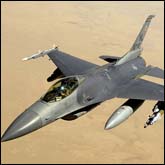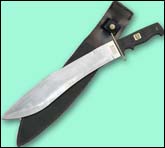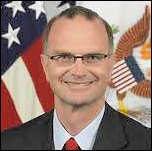 Two criminal informations (which you can find here and here) have been filed in the United States District Court for the Southern District of Florida charging Alberto Pichardo, an officer of the Venezuelan Air Force, and others with violation of the Arms Export Control Act in connection with alleged unlicensed exports of F-16 parts and other military aircraft parts from the United States to the Venezuelan Air Force.
Two criminal informations (which you can find here and here) have been filed in the United States District Court for the Southern District of Florida charging Alberto Pichardo, an officer of the Venezuelan Air Force, and others with violation of the Arms Export Control Act in connection with alleged unlicensed exports of F-16 parts and other military aircraft parts from the United States to the Venezuelan Air Force.
Judging from a news report on the charges as well as the two dockets, it appears that Pichardo has decamped the United States prior to the charges. There is no indication in the docket that an arrest has been made. It is probably safe to assume that Pichardo is not coming back to the United States voluntarily in the future at this point and that an extradition request with the Venezuelan courts will not be favorably received. The charging documents also name Freddy Arguelles, a former pilot of the Venezuelan Air Force (also no longer in Florida), as well as Victor Brown, a Hialeah Gardens aircraft parts trader, as co-defendants. Kirk Drellich of SkyHigh Accessories, Inc., located in Davie, Florida, was named as a co-conspirator but not charged in the documents that have been filed so far. (SkyHigh advertises on its website that it is “fully export compliant.”)
But the most interesting detail in the charging papers, and the reason for the post title, is this: Pichardo “was responsible for the oversight and control of the Venezuelan Military Acquisitions Office in Doral, Florida.” That’s right. In 2009 and 2010, the time period of the exports in question, there was a “Venezuelan Military Acquisitions Office” openly operating in Doral, Florida. The U.S. arms embargo against Venezuela had been in place since August 2006.

 Posted by
Posted by  Category:
Category: 

 The Bureau of Industry and Security (“BIS”) and the Directorate of Defense Trade Controls (“DDTC”) have announced proposed reforms to Category X of the United States Munitions List (“USML”). Category X covers protective personnel equipment and shelters.
The Bureau of Industry and Security (“BIS”) and the Directorate of Defense Trade Controls (“DDTC”) have announced proposed reforms to Category X of the United States Munitions List (“USML”). Category X covers protective personnel equipment and shelters. A
A  A
A 


